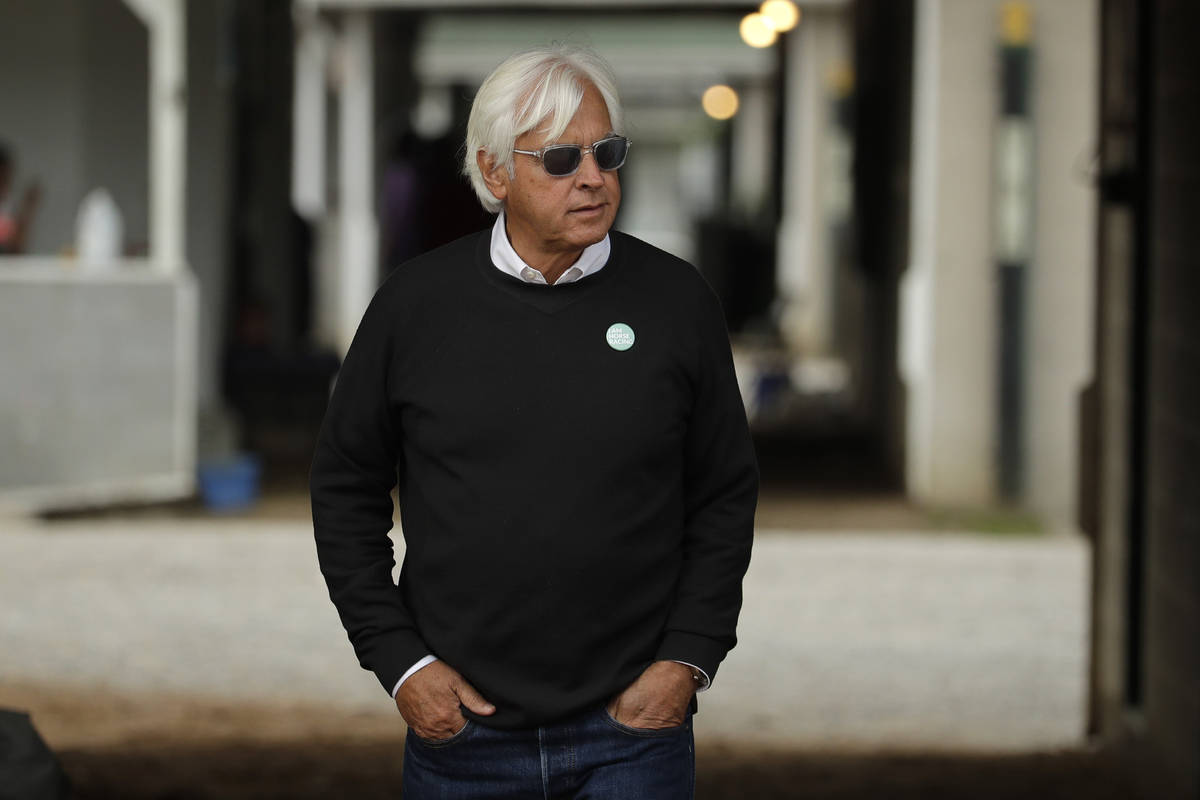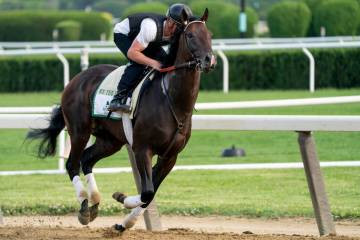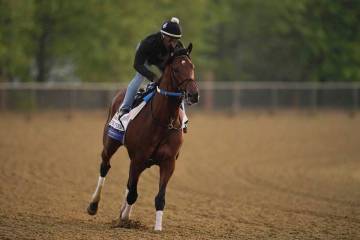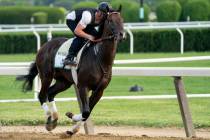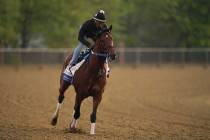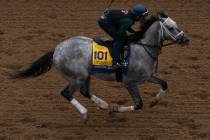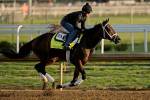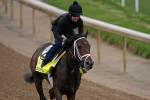Urine test could be pivotal in pending Kentucky Derby DQ
The developing legal battle over the anticipated disqualification of Medina Spirit from his Kentucky Derby victory has taken an unusual turn, with testing of the colt’s urine moving to the forefront.
A lawsuit filed by Hall of Fame trainer Bob Baffert and the colt’s owner, Amr Zedan, in Kentucky’s Franklin County Circuit Court is aimed at preventing state racing officials from disqualifying the colt and redistributing his $1.86 million winner’s share of the Derby purse.
Medina Spirit’s victory is in jeopardy because a post-race blood test showed the presence of a minute amount of betamethasone, a legal steroid used to treat joint inflammation that is prohibited in any amount on race day. The finding later was confirmed by a test of a split sample of blood requested by the plaintiffs.
Positive blood tests usually are the last word when it comes to horse racing drug violations. But Baffert and Zedan quickly opened a new battlefront, asking Judge Thomas Wingate to order testing of a 25 to 27 milliliter sample of urine also drawn after the race.
Their aim is to show the presence of clotrimazole, gentamicin and betamethasone valerate — all ingredients or byproducts of the Otomax skin cream they say was used to treat a rash on the colt’s skin, resulting in accidental contamination.
Baffert’s lawyer, Craig Robertson, argued that if the tests prove the balm was to blame, it could be “completely exonerating,” suggesting that Kentucky regulations only pertain to betamethasone injections. At the very least, he said, it could be used to argue for a penalty short of disqualification when Kentucky stewards consider the case.
The judge agreed to the testing, but the two sides could not agree on details such as how much would be tested and how much would be retained by the Kentucky Horse Racing Commission.
That prompted Wingate to devise his own solution on Wednesday, ordering the racing commission to hold 5 milliliters of urine and provide the rest to a New York lab, according to the BloodHorse.
He also ordered at least two commission representatives to transport the urine — frozen and safely stored — to the lab on a flight paid for by the plaintiffs.
It’s not yet clear whether the lab will be able to detect the substances related to the ointment, or if such evidence would make a difference under Kentucky racing rules.
Baffert hasn’t expended all his legal firepower on the pee test, though.
He also sued the New York Racing Association this week, seeking to overturn a temporary suspension preventing him from entering horses or obtaining stalls at NYRA racetracks, including at the upcoming meet at Saratoga Race Course.
The lawsuit argues that the nonprofit’s action violated his due process rights.
“NYRA has, without legal authority and without any notice or opportunity to be heard, attempted to indefinitely suspend Baffert’s trainer’s license issued by the Gaming Commission, thereby preventing Baffert from practicing in his chosen profession or using his state-issued license on state-owned property,” it said.
NYRA, which announced the suspension May 17 after Churchill Downs Inc. imposed a similar sanction, said it would “vigorously defend” its right to exclude the trainer to “protect the integrity of the sport for our fans, the betting public and racing participants.”
Mike Brunker’s horse racing column appears Fridays. He can be reached at mbrunker@reviewjournal.com or 702-383-4656. Follow @mike_brunker on Twitter.



